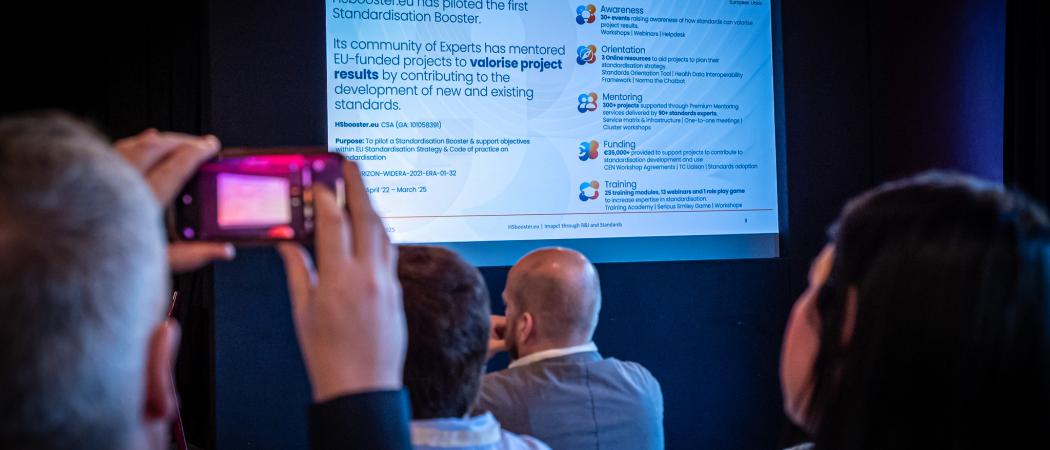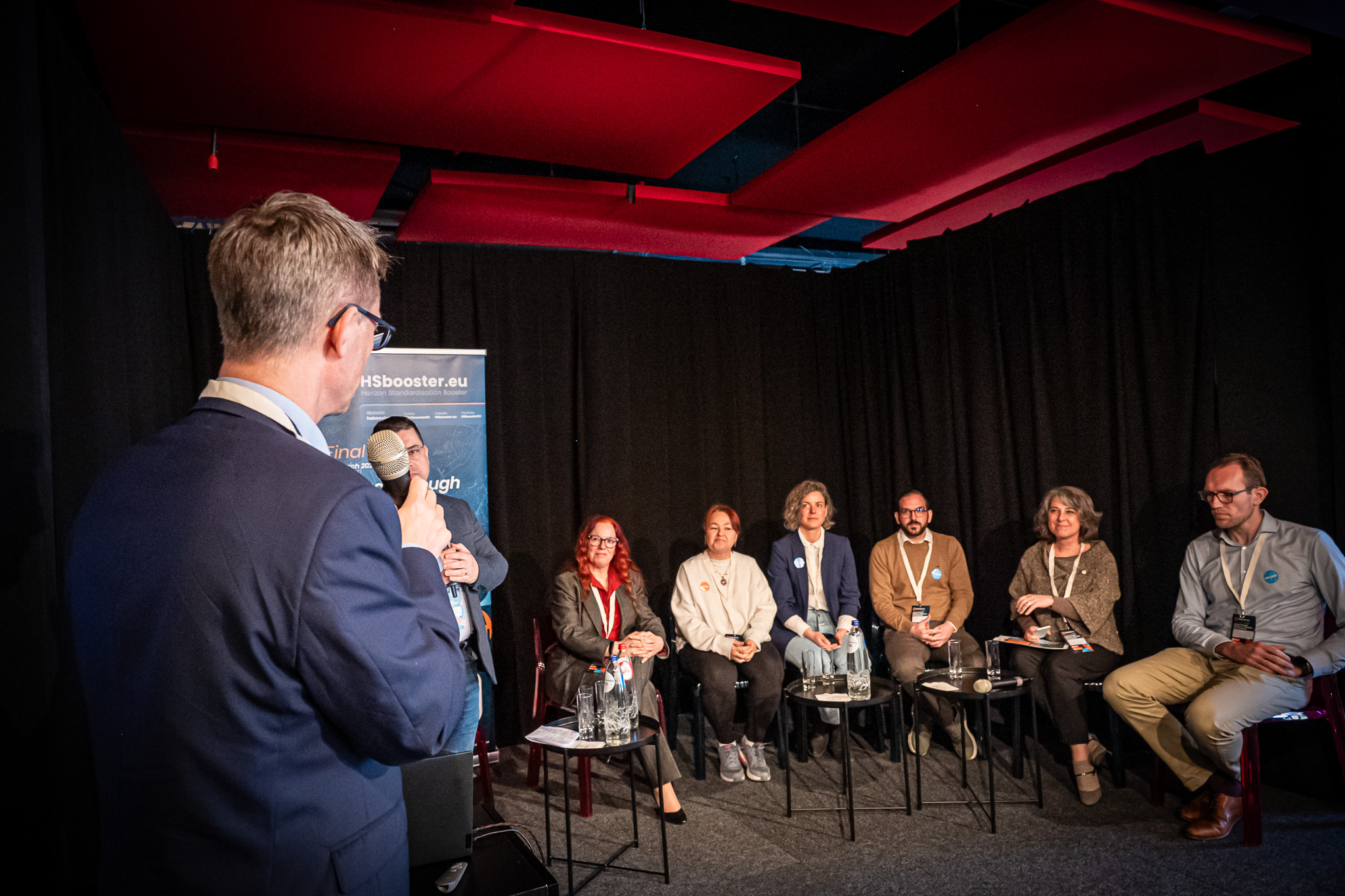The European Commission looks to build on standardisation booster service with a revised directive, new services and added incentives for researchers.

Photo credits: Trust IT
Most people don’t give standards a second thought. But in everyday life, standards are of great importance. They make a light bulb fit a lamp, screws fit a nut and USB connectors fit a computer. The list goes on. Standards can, for example, set requirements for a product's performance, describe technical terms and prescribe methods for testing a product's durability.
Having mentored more than 300 EU-funded projects and recruited over 200 experts since April 2022, the EU standardisation booster service HSbooster.eu has now entered evaluation mode. Launched by the European Commission with a view to achieving European leadership in global standards, HSbooster.eu has helped the Horizon Europe and H2020 projects contribute to standardisation. As well as being beneficial to society, the Commission’s stance is that standards are foundational for the knowledge economy that supports the competitiveness of European industry. It, therefore, regards boosting standardisation as essential.
Contributing to standards is an objective of many research and innovation (R&I) projects, and participating and implementing standardisation activities is an eligible cost under some Horizon Europe actions. Even so, contributing to standards can be difficult, especially for small and medium-sized enterprises lacking the expertise to engage with a complex mix of standardisation working groups, technical committees and focus groups.
“Many projects struggle with committees and certification bodies because project coordinators lack knowledge of how to navigate the process,” explains Nicholas Ferguson, coordinator of HSbooster.eu and senior manager at Trust-IT, one of six partners in a consortium led by Commpla, an IT services provider.

Converting theory into practice
A key accomplishment of HSBooster.eu is the establishment of a dedicated mentoring and support service for EU projects, which integrates project results into standardisation activities, thereby amplifying their market relevance and competitiveness.
“One needs to understand the rules in theory, but then when joining a technical committee and faced with them in practice, it is expected that new doubts emerge,” explains Sandra Feliciano, a standards expert and professor at the Polytechnic of Porto. “Any mentoring programme should cover not only the initial theoretical framework, but also live coaching of new experts when they first join a technical committee, to ensure they become as effective and efficient as possible, as fast as possible."
Feliciano joined HSbooster.eu to advise on two projects: Urbanome and Ponderful. Ponderful promotes ponds and pondscapes as nature-based solutions for climate change mitigation and adaptation, biodiversity conservation, and the delivery of ecosystem services. The project’s standardisation objectives were to develop a set of tools for decision-makers and local practitioners to promote nature-based solutions, as well as coordinate interactions with international scientific, policy and practical networks and to disseminate project results to multiple audiences.
Feliciano linked up with Alfred Figueres Anton, a project manager, who had no prior experience with the standardisation process. Through three two-hour masterclasses, they immersed themselves in the principles of international standardisation, internal regulations and procedures, how technical committees operate and how standards are made. Beyond these masterclasses, Anton joined the technical committee of the standardisation body Danish Standards, launching him on a path of further education.
A potential metric for career development
The Commission say the goals it set out three years ago with the launch of the EU Strategy for Standardisation have largely been achieved. Still, there is more to accomplish, and standardisation remains a key priority for the EU Commission. To further strengthen the link between standardisation and R&I, the Commission plans to revise the Standardisation Directive, introducing measures such as incentives for researchers to participate in standardisation efforts.
Embedding standards further into researchers’ career paths could help accelerate European leadership.
“The more widespread standards become, the better the metric for career development,” says Ferguson. “We recommend that researchers can have their names attached to standards like they do in academic papers as this could accelerate progress.” This sentiment is echoed by Feliciano: "We must empower academia to educate the next generation of experts, who can contribute to and lead future standardisation projects."
Looking ahead, the Commission is aiming to build upon the foundation laid by HSbooster.eu and expand its reach. Future activities will include developing a next generation standardisation booster that provides support services to more R&I projects across the EU. To that end, the Commission will encourage wider participation from national and EU-funded projects across diverse domains. It also plans to continue an annual stakeholder survey on standardisation to gain a deeper understanding of industry needs and inform future activities.





 A unique international forum for public research organisations and companies to connect their external engagement with strategic interests around their R&D system.
A unique international forum for public research organisations and companies to connect their external engagement with strategic interests around their R&D system.